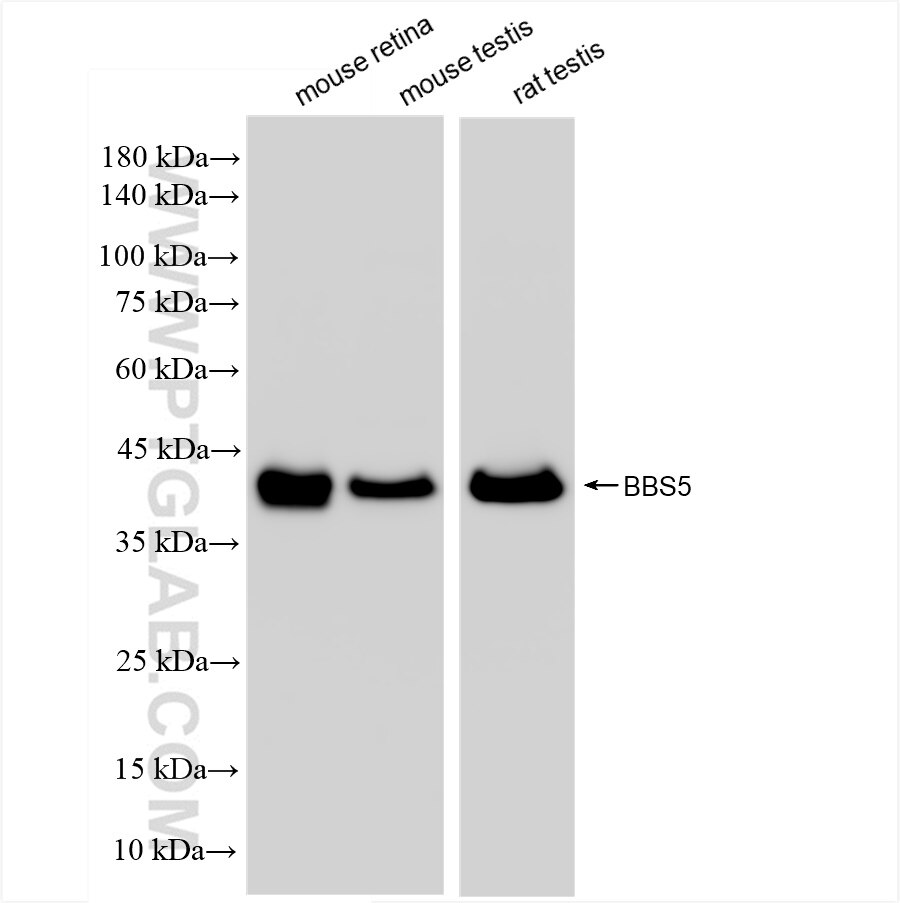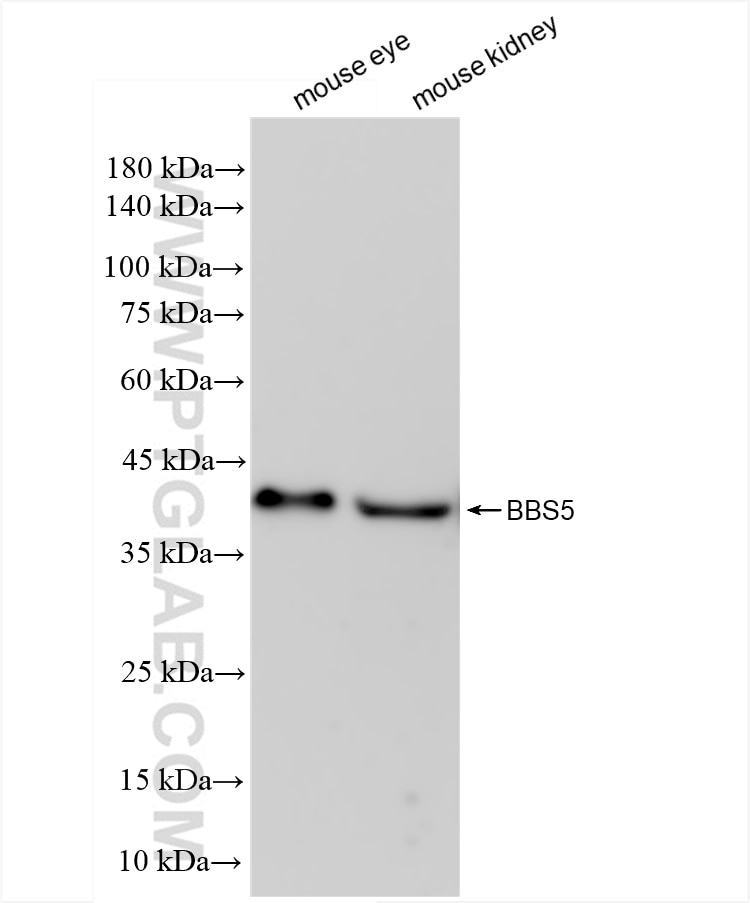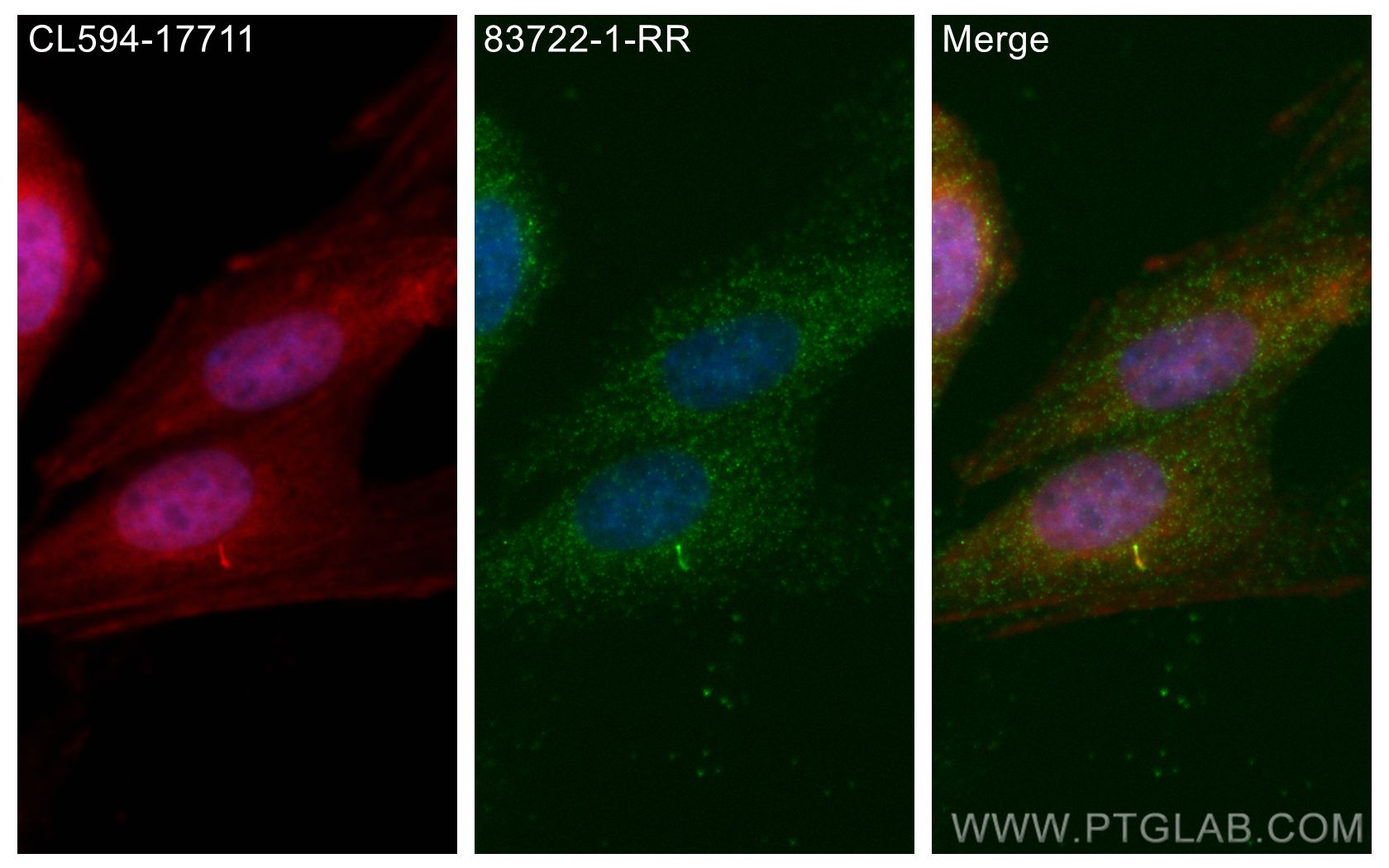BBS5 Rekombinanter Antikörper
BBS5 Rekombinant Antikörper für WB, IF/ICC, ELISA
Wirt / Isotyp
Kaninchen / IgG
Getestete Reaktivität
human, Maus, Ratte
Anwendung
WB, IF/ICC, ELISA
Konjugation
Unkonjugiert
CloneNo.
240674B5
Kat-Nr. : 83722-1-RR
Synonyme
Geprüfte Anwendungen
| Erfolgreiche Detektion in WB | Maus-Retina-Gewebe, Maus-Augengewebe, Mausnierengewebe, Maushodengewebe, Rattenhodengewebe |
| Erfolgreiche Detektion in IF/ICC | MDCK-Zellen |
Empfohlene Verdünnung
| Anwendung | Verdünnung |
|---|---|
| Western Blot (WB) | WB : 1:2000-1:10000 |
| Immunfluoreszenz (IF)/ICC | IF/ICC : 1:50-1:500 |
| It is recommended that this reagent should be titrated in each testing system to obtain optimal results. | |
| Sample-dependent, check data in validation data gallery | |
Produktinformation
83722-1-RR bindet in WB, IF/ICC, ELISA BBS5 und zeigt Reaktivität mit human, Maus, Ratten
| Getestete Reaktivität | human, Maus, Ratte |
| Wirt / Isotyp | Kaninchen / IgG |
| Klonalität | Rekombinant |
| Typ | Antikörper |
| Immunogen | BBS5 fusion protein Ag6153 |
| Vollständiger Name | Bardet-Biedl syndrome 5 |
| Berechnetes Molekulargewicht | 39 kDa |
| Beobachtetes Molekulargewicht | 39 kDa |
| GenBank-Zugangsnummer | BC044593 |
| Gene symbol | BBS5 |
| Gene ID (NCBI) | 129880 |
| Konjugation | Unkonjugiert |
| Form | Liquid |
| Reinigungsmethode | Protein-A-Reinigung |
| Lagerungspuffer | PBS with 0.02% sodium azide and 50% glycerol |
| Lagerungsbedingungen | Bei -20°C lagern. Nach dem Versand ein Jahr lang stabil Aliquotieren ist bei -20oC Lagerung nicht notwendig. 20ul Größen enthalten 0,1% BSA. |
Hintergrundinformationen
BBS5 encodes a protein that has been directly linked to Bardet-Biedl syndrome. Bardet-Biedl syndrome (BBS) is an autosomal recessive condition characterised by rod-cone dystrophy, postaxial polydactyly, central obesity, mental retardation, hypogonadism, and renal dysfunction. Other associated clinical findings in BBS patients include diabetes, hypertension and congenital heart defects. BBS expression varies both within and between families and diagnosis is often difficult. Experimentation in non-human eukaryotes suggests that BBS5 is expressed in ciliated cells and that it is required for the formation of cilia. Alternate transcriptional splice variants have been observed but have not been fully characterized.
Protokolle
| PRODUKTSPEZIFISCHE PROTOKOLLE | |
|---|---|
| WB protocol for BBS5 antibody 83722-1-RR | Protokoll herunterladen |
| IF protocol for BBS5 antibody 83722-1-RR | Protokoll herunterladen |
| STANDARD-PROTOKOLLE | |
|---|---|
| Klicken Sie hier, um unsere Standardprotokolle anzuzeigen |




